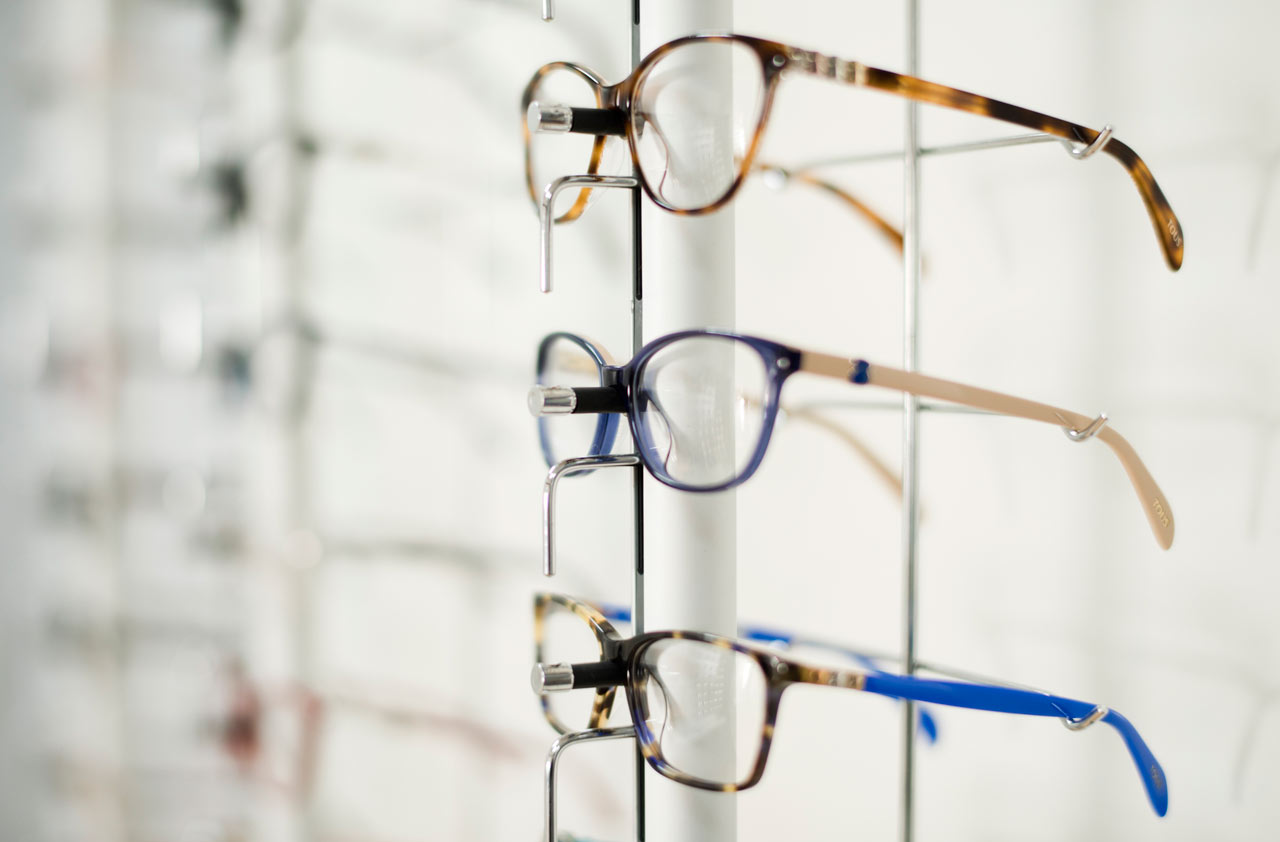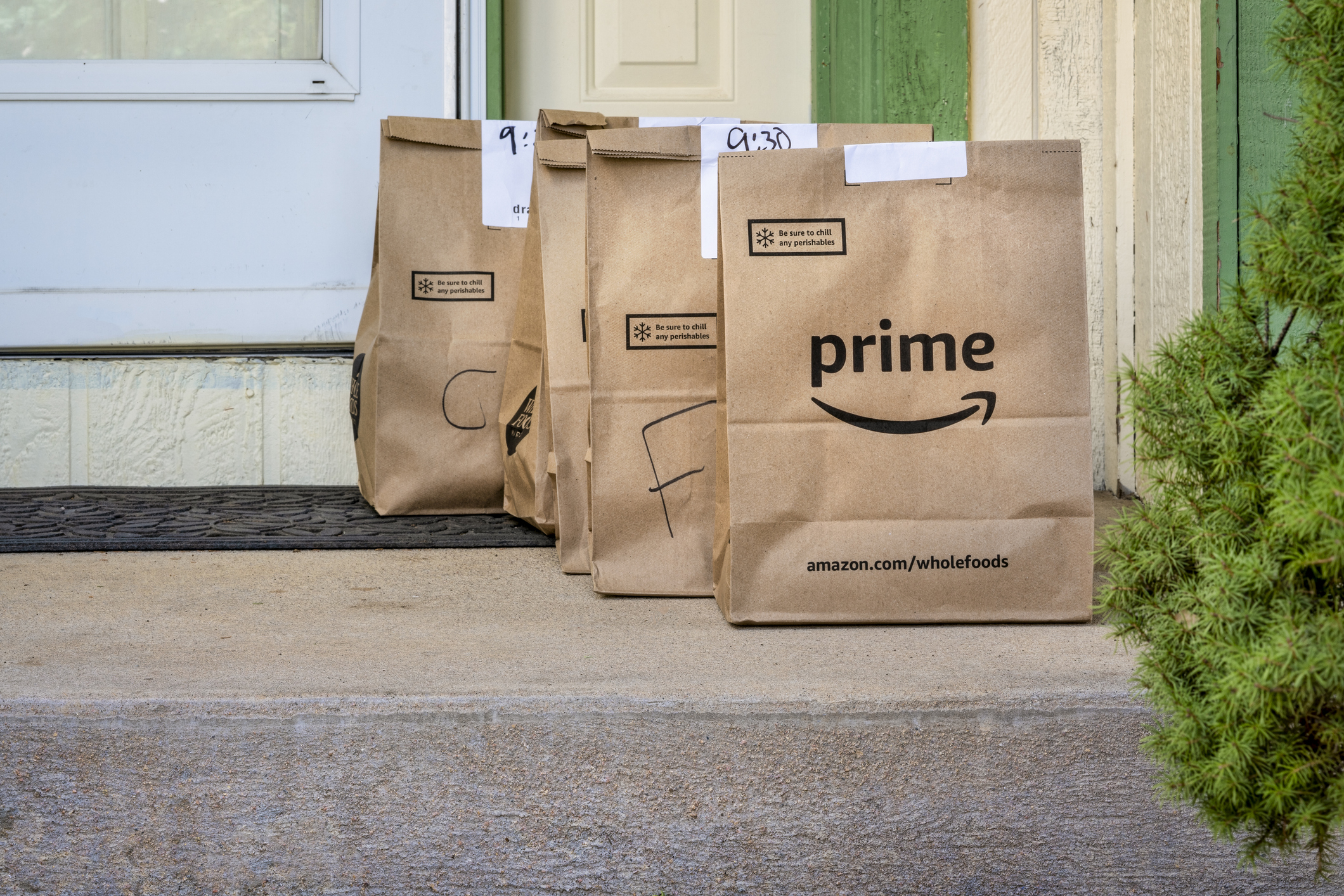4 Things You Must Know Before Buying Eyeglasses Online
Factors such as cost, convenience, and broader selection are luring more four-eyed consumers online.


Profit and prosper with the best of Kiplinger's advice on investing, taxes, retirement, personal finance and much more. Delivered daily. Enter your email in the box and click Sign Me Up.
You are now subscribed
Your newsletter sign-up was successful
Want to add more newsletters?

Delivered daily
Kiplinger Today
Profit and prosper with the best of Kiplinger's advice on investing, taxes, retirement, personal finance and much more delivered daily. Smart money moves start here.

Sent five days a week
Kiplinger A Step Ahead
Get practical help to make better financial decisions in your everyday life, from spending to savings on top deals.

Delivered daily
Kiplinger Closing Bell
Get today's biggest financial and investing headlines delivered to your inbox every day the U.S. stock market is open.

Sent twice a week
Kiplinger Adviser Intel
Financial pros across the country share best practices and fresh tactics to preserve and grow your wealth.

Delivered weekly
Kiplinger Tax Tips
Trim your federal and state tax bills with practical tax-planning and tax-cutting strategies.

Sent twice a week
Kiplinger Retirement Tips
Your twice-a-week guide to planning and enjoying a financially secure and richly rewarding retirement

Sent bimonthly.
Kiplinger Adviser Angle
Insights for advisers, wealth managers and other financial professionals.

Sent twice a week
Kiplinger Investing Weekly
Your twice-a-week roundup of promising stocks, funds, companies and industries you should consider, ones you should avoid, and why.

Sent weekly for six weeks
Kiplinger Invest for Retirement
Your step-by-step six-part series on how to invest for retirement, from devising a successful strategy to exactly which investments to choose.
If you wear prescription glasses, you know the drill: You go in for an eye exam at an eyewear retail chain, such as America's Best or MyEyeDr., and the optometrist on duty breaks the news that you need a new prescription. Move from the exam room to the storefront, and you'll get a rundown of the pricey frame and lens options available for purchase. Are you ready to drop several hundred dollars on the spot for a new pair of glasses?
You may be able to find a better deal on your glasses online. By selling directly to consumers, online-only retailers are able to trim a lot of the back-end costs that shoppers unknowingly incur at brick-and-mortar establishments. For example, we found a pair of Vogue brand frames on sale at FramesDirect.com for $90. At LensCrafters, a well-known eyewear retail chain, those same frames cost $150.
Indeed, factors such as cost, convenience, and broader selection are luring more four-eyed consumers online. Last year, an estimated 3.2 million pairs of prescription glasses were purchased on the internet, up from 2.9 million in 2016, according to the Vision Council's 2017 Internet Influence Report. Shoppers can search multiple online retailers and eyewear brands to compare prices from the comfort of their couch without the pressure of making an expensive decision right after an eye exam.
From just $107.88 $24.99 for Kiplinger Personal Finance
Become a smarter, better informed investor. Subscribe from just $107.88 $24.99, plus get up to 4 Special Issues

Sign up for Kiplinger’s Free Newsletters
Profit and prosper with the best of expert advice on investing, taxes, retirement, personal finance and more - straight to your e-mail.
Profit and prosper with the best of expert advice - straight to your e-mail.
However, buying glasses online can be tricky—filled with inconveniences, extra costs and delays. We interviewed several experts to determine what consumers should consider before buying a pair of eyeglasses online. Here's what they had to say:
Find Out If Your Vision Insurance Covers Glasses Purchased Online
Many online-only eyewear retailers are considered out-of-network providers by vision insurance plans. If your plan offers out-of-network benefits, you'll initially have to pay out of pocket for your glasses online and then submit your receipts to your insurer for a partial reimbursement (out-of-pocket costs are typically greater when you choose an out-of-network provider). That's the case with popular e-retailers such as EyeBuyDirect.com, eyeglasses.com, FramesDirect.com, GlassesUSA.com and ZenniOptical.com.
If your vision insurance doesn't offer out-of-network benefits, a flexible spending account (FSA) or a health savings account (HSA) through your employer can help to defray some of the cost of your new glasses by letting you pay with pretax money. With this option, you'll also have to pay up front and then submit your receipts to your FSA or HSA provider for reimbursement from your self-funded account.
Know the Type of Prescription You Need
ZenniOptical, FramesDirect and eyeglasses.com all have opticians who inspect prescription lenses prior to shipment, but your prescribing doctor won't be able inspect them before you buy to make sure the prescription and fit are correct.
"When prescription glasses are sent directly to the patient, the retailer knows the prescription will not be verified for accuracy, optical center positioning, bifocal or progressive vertical height measurement, and, most importantly, safety of frame and lens materials," says Christopher J. Quinn, an optometrist and president of the American Optometric Association (AOA). In a 2011 study conducted by the AOA, 154 pairs of prescription glasses purchased from online vendors were tested for accuracy, and nearly half failed to meet optical requirements.
That's why consumers who purchase prescription eyeglasses online should provide as much information as possible to ensure their order is correct. "This means asking your doctor for a copy of the prescription," says Julie Ramhold, a consumer analyst for DealNews.com. You'll also need to know the proper size frame for your face, your pupillary distance, and details on any special lenses and coatings you need. "When you're in a doctor's office -- where they already know this information -- it can seem easier to just go with what they recommend. However, you could end up paying a lot more," she adds.
If after receiving your new prescription glasses you suspect something is amiss, "take them back to your prescribing doctor to have them verify the lenses are correct," Ramhold says. If there is a problem, ask your doctor for a written explanation that you can provide to the company from which you purchased your glasses. (You may be charged for the follow-up doctor's visit.) "Hopefully, the proof will be enough for the company to remake the lenses at no extra charge," Ramhold says.
Read the Site's Return and Exchange Policies
Most sites don't offer full refunds on returned eyewear with prescription lenses. For example, FramesDirect.com deducts 50% of the lens price from the refund amount for returns within 30 days of purchase. ZenniOptical.com offers a 50% refund or a 100% store credit on all eyewear returned within 30 days of the delivery date. Eyeglasses.com provides a 50% refund on returned lenses.
All of the sites mentioned here also deduct the cost of shipping from the refund amount.
Look Out for Special Discounts
Savvy consumers can score even bigger deals online by seeking discounts off online retailers' already-low prices. For instance, at GlassesUSA.com, eligible college students can get 55% off non-premium and non-clearance frames.
To help you stay on top of discount promo codes and other can't-miss deals, sign up for alerts from deal-aggregator sites such as RetailMeNot.com and Offers.com.
Profit and prosper with the best of Kiplinger's advice on investing, taxes, retirement, personal finance and much more. Delivered daily. Enter your email in the box and click Sign Me Up.

Browne Taylor joined Kiplinger in 2011 and was a channel editor for Kiplinger.com covering living and family finance topics. She previously worked at the Washington Post as a Web producer in the Style section and prior to that covered the Jobs, Cars and Real Estate sections. She earned a BA in journalism from Howard University in Washington, D.C. She is Director of Member Services, at the National Association of Home Builders.
-
 Dow Leads in Mixed Session on Amgen Earnings: Stock Market Today
Dow Leads in Mixed Session on Amgen Earnings: Stock Market TodayThe rest of Wall Street struggled as Advanced Micro Devices earnings caused a chip-stock sell-off.
-
 How to Watch the 2026 Winter Olympics Without Overpaying
How to Watch the 2026 Winter Olympics Without OverpayingHere’s how to stream the 2026 Winter Olympics live, including low-cost viewing options, Peacock access and ways to catch your favorite athletes and events from anywhere.
-
 Here’s How to Stream the Super Bowl for Less
Here’s How to Stream the Super Bowl for LessWe'll show you the least expensive ways to stream football's biggest event.
-
 What Does Medicare Not Cover? Eight Things You Should Know
What Does Medicare Not Cover? Eight Things You Should KnowMedicare Part A and Part B leave gaps in your healthcare coverage. But Medicare Advantage has problems, too.
-
 15 Reasons You'll Regret an RV in Retirement
15 Reasons You'll Regret an RV in RetirementMaking Your Money Last Here's why you might regret an RV in retirement. RV-savvy retirees talk about the downsides of spending retirement in a motorhome, travel trailer, fifth wheel, or other recreational vehicle.
-
 Five Ways to Save on Vacation Rental Properties
Five Ways to Save on Vacation Rental PropertiesTravel Use these strategies to pay less for an apartment, condo or house when you travel.
-
 How to Avoid Annoying Hotel Fees: Per Person, Parking and More
How to Avoid Annoying Hotel Fees: Per Person, Parking and MoreTravel Here's how to avoid extra charges and make sure you don't get stuck paying for amenities that you don't use.
-
 Protect Your Retirement Income from Inflation
Protect Your Retirement Income from InflationMaking Your Money Last With a new President promising tariffs on imported goods from China, Mexico and Canada, inflation may rise in 2025, but that doesn’t have to jeopardize your long-term security.
-
 What to Know About CD Ladders, A Flexible Way to Save
What to Know About CD Ladders, A Flexible Way to SaveSavings One way to keep your earnings on track is to spread out your cash.
-
 Retirees, Take the Off Ramp to a New Career
Retirees, Take the Off Ramp to a New CareerMaking Your Money Last For many seniors, changing careers can be a long and daunting process. But the rewards can be rich.
-
 10 Alternatives to Amazon Prime for Free Shipping and More
10 Alternatives to Amazon Prime for Free Shipping and MoreFeature With more and more retailers offering free shipping and exclusive deals, Amazon Prime isn't your only option for member's only pricing and perks. Here are 10 Amazon alternatives to check out.